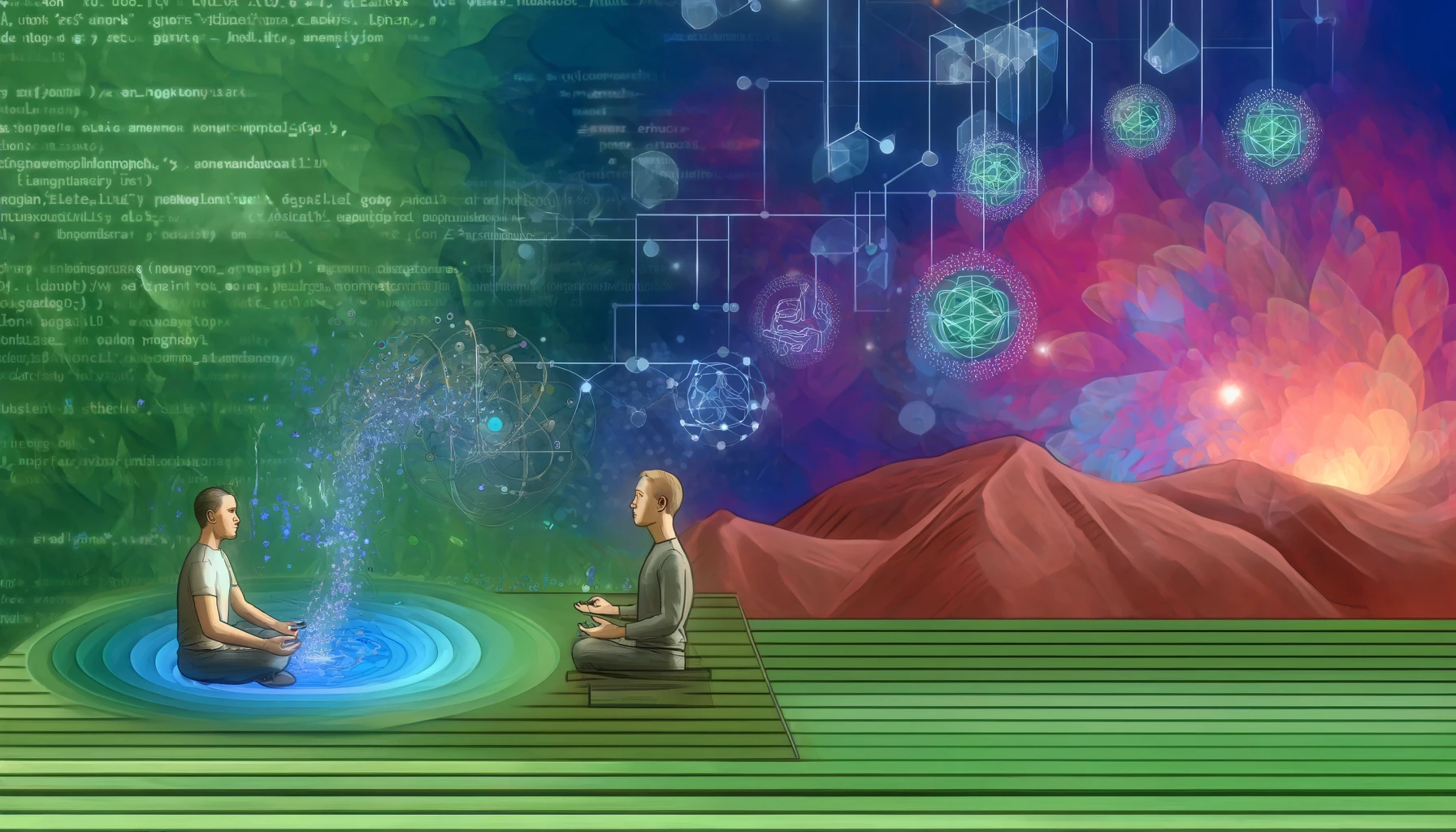
Understanding Digital Events: Process Philosophy and Causal Autonomy
As technology continues to evolve at an unprecedented rate, our immersion in digital networks grows deeper, transforming the way we live, work, and interact. While these advancements bring numerous benefits, they also pose significant ethical and philosophical challenges. Our recent paper, "Understanding Digital Events: Process Philosophy and Causal Autonomy" presented at the 53rd Hawaii International Conference on System Sciences delves into these challenges, examining how digital experiences influence our autonomy and free will.
The Ethical Landscape of Digital Immersion
Digital and social media technologies are now integral to our daily lives. However, their pervasive presence has led to both intended and unintended consequences. Our central argument is that the increasing immersion in these digital networks risks overwhelming our ability to direct our own lives. To mitigate this risk, we advocate for IT mindfulness in both the design and use of digital technologies.
It is crucial to note that the technology itself is not inherently bad. Rather, the issues arise from poor design choices and the unintended consequences of complex algorithms. As designers lose control over these algorithms, the potential for negative outcomes increases. Users, too, play a role, often interacting with digital services in unforeseen ways. Therefore, a conscious effort is required from both designers and users to navigate these risks.
The Philosophy of Digital Events
To understand the impact of digital experiences, we turn to process philosophy, particularly the works of Henri Bergson and Alfred North Whitehead. Both philosophers emphasise the importance of events over fixed entities, focusing on duration, relation, and multiplicity.
Bergson's Perspective: Bergson's concept of durée reélle (real duration) highlights the intimate connection between free will, consciousness, and time. He argues that free will is exercised within the indeterminate moments of consciously experienced time, allowing for human choices that shape the universe's course.
Whitehead's View: Whitehead's process-relational ontology presents a dynamic, interconnected universe where reality is composed of interrelated events. His organic philosophy suggests that all entities, from the smallest particles to the largest organisms, experience the world and contribute to the process of becoming.
By integrating these philosophical insights, we propose that digital events are continuous and interconnected, much like the events described by Bergson and Whitehead. Understanding digital events through this lens helps us appreciate their complexity and the potential for these events to shape our lives.
Human Sovereignty vs. Technological Autonomy
We explore a continuum between Human Sovereignty (HS) and Technological Autonomy (TA). At one end, HS represents the traditional view where technology is an inanimate product of human action, fully under human control. At the other end, TA suggests that technology can operate independently, influencing human actions with minimal intervention.
Our analysis identifies three gradations of digital events along this continuum:
- DE1 (Discrete Events): Simple interactions with digital functions, such as listening to music on a smartphone.
- DE2 (Interacting Functions): Multiple digital functions interacting automatically, providing a seamless user experience.
- DE3 (Autonomous Systems): Highly automated systems, such as smart home devices, which can temporarily take full control but may require human intervention in complex situations.
These gradations illustrate how digital events can range from basic interactions to highly immersive and autonomous experiences. As we progress towards DE3, the potential for technology to co-direct our lives increases, raising concerns about the erosion of our free will.
The Need for IT Mindfulness
To counter the risks posed by digital immersion, we emphasise the importance of IT mindfulness. Brown and Ryan define mindfulness as being attentive and aware of the present moment. In the context of digital events, IT mindfulness involves a conscious awareness of our digital interactions, allowing us to make informed choices and maintain control over our lives.
Our study participants highlighted the importance of taking breaks from digital devices and engaging in non-digital activities to maintain mindfulness. By balancing digital interactions with offline experiences, we can better manage the influence of digital technologies on our lives.
Conclusion: Embracing Infomateriality
We introduce the concept of 'infomateriality' to describe the condition of human societies where information exchange and digital tools are co-constitutive of our physical reality. Infomateriality acknowledges the role of digital events in shaping our experiences and underscores the need for ethical considerations in technology design.
As designers and users of digital technologies, we must prioritise mindfulness and ethical principles to navigate the complexities of our digital world. By doing so, we can harness the benefits of digital advancements while safeguarding our autonomy and free will.
References
Bergson, H. (2005). Time and Free Will. George Allen and Unwin.
Brown, K. W., & Ryan, R. M. (2003). The Benefits of Being Present: Mindfulness and Its Role in Psychological Well-Being. Journal of Personality and Social Psychology, 84(4), 822-848.
Eyal, N. (2014). Hooked: How to Build Habit-Forming Products. Penguin.
Kreps, D., Rowe, F., & Muirhead, J. (2020). Understanding Digital Events : Process Philosophy and Causal Autonomy. Presented at 53rd Hawaii International Conference on System Sciences, Grand Wailea, Maui, Hawaii.
Whitehead, A. N. (1932). Science and the Modern World. The Free Press.
